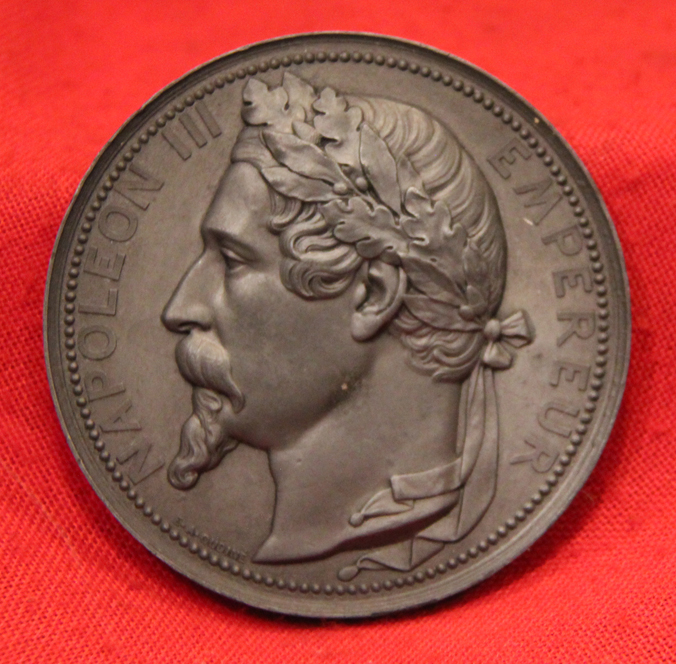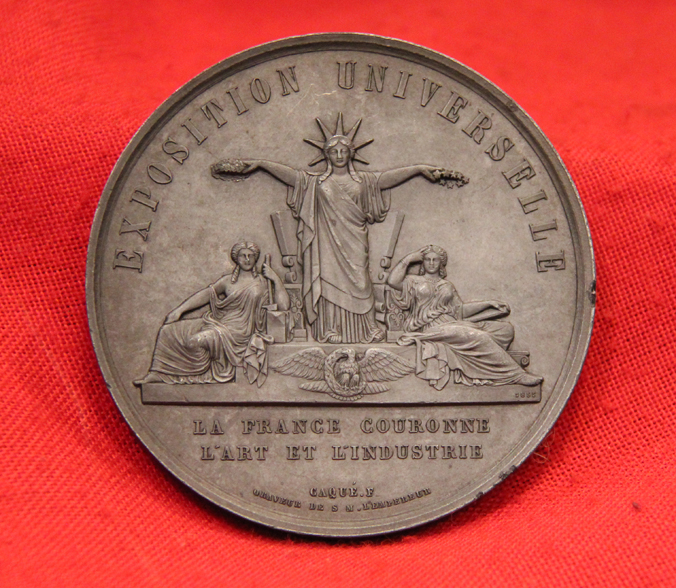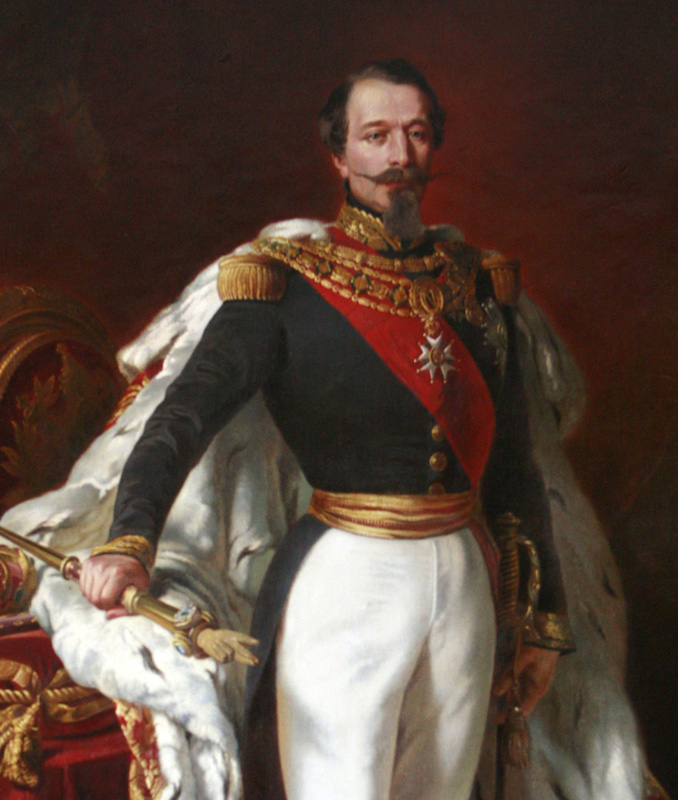French Medal Commemorating the Universal Exhibition in Paris,1855. E.Oudine
A large, original, mid 19th century French metal medal of beautiful quality made in 1855. Laureate bust of Napoleon III left. NAPOLEON III EMPEREUR (Obverse by E.A. Oudin?) Reverse: Three allegorical figures. EXPOSITION UNIVERSELLE In exergue: LA FRANCE COURONNE / L'ART ET INDUSTRIE (Reverse by A.A. Caqu?) 6.83 cm diameter. A near identical example in the Royal Collection Trust number;RCIN 444908
AA Caqu? (medallist) and E.Oudine
Napol?on III, Emperor of the French, 3rd son of Lodewyk I, King of Holland (1808-73)
Exposition Universelle (1855 : Paris) Very crisp example in nice condition, two very small edge nicks on the reverse. Exactly ten years before the opening of the first universal exposition in Paris, the future father of the event was serving a lifetime prison term in the state military fortress at Ham. Charles Louis Napol?on Bonaparte, nephew and adopted godson of the Emperor, had failed in his second attempt at a coup d'?tat against the restored monarchy of Louis Philippe. After the first attempt in 1836, the government had exiled him to America. The second attempt in 1840 earned him the detention term at Ham, behind the very walls that, over four centuries before, had held Joan of Arc captive. Many monarchists and conservatives in the Court of Peers and the National Assembly wished for terminal punishment; but the name of Napol?on was in the ascendant once again throughout France. On the very day when Charles Louis was sentenced, Emperor Napol?on's ashes were received by both royalty and the multitudes of Paris with great pomp at the church of Les Invalides. And so, rather than arouse the wrath of the still considerable number of Bonapartists, the Court of Peers determined to make the military fortress at Ham the Elba of Charles Louis. In spite of a decree banning the Bonaparte family from France forever, Charles was elected in absentia to the Assembly. He skillfully parlayed his popularity, and the halo of glory around the name Napol?on, into the presidency of the National Assembly in 1848. After a parliamentary struggle with the retreating forces ? supporters of the monarchy and revolutionaries who wished France to become a republic ? Charles Louis took command of the army and forcibly dismissed the assembly. He was proclaimed Emperor of the French on December 1, 1851.
Code: 21482
195.00 GBP



